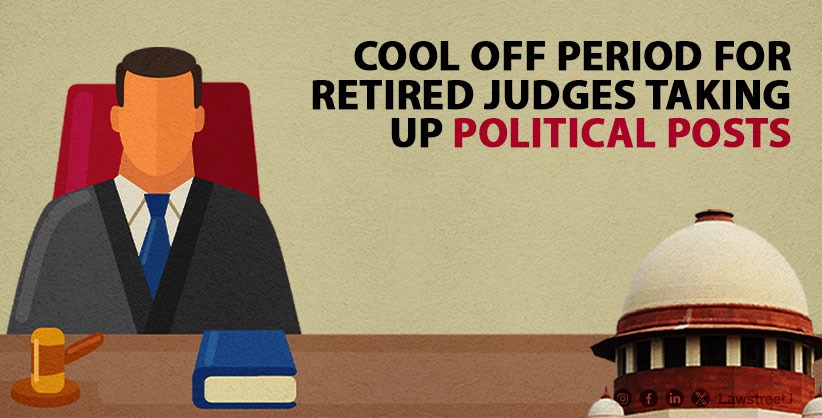NEW DELHI: The Supreme Court on Wednesday declined to entertain a plea by the Bombay Lawyers Association for a direction to fix a cooling off period of two years for retired judges of constitutional courts to take up a political post.
A bench of Justices Sanjay Kishan Kaul and Sudhanshu Dhulia dismissed the PIL, saying it is upto a particular retired judge to take a call on accepting such an appointment.
Advocate Ahmad Mehdi Abdi for the petitioner contended that the practice has to be regulated to prevent a misconception being formed in the minds of the people that a judge accepting any post-retirement sinecure from the government was biased in his decisions during his judicial tenure.
The court sought to know from him if he was challenging the appointment of retired judges to statutory posts at tribunals.
The counsel said the plea was related to political posts that depended on the discretion of the executive.
The bench said the issue whether a retired judge should accept any office has to be left to the discretion of the judge concerned.
The court also said whether a law has to be enacted on the issue cannot be a subject matter of this court's directions under Article 32 of the Constitution.
It also pointed out the petitioner cited the instance of Justice S Abdul Nazeer who was appointed Governor of Andhra Pradesh within months of his retirement as a Supreme Court judge.
The counsel, for his part, claimed the name of the judge was taken as an example to seek a set of guidelines for having two years cooling off period.
The petitioner claimed the acceptance of political appointments by judges of this court and High Courts after retirement without any cooling off period is adversely affecting public perception about independence of judiciary.
It referred to cool off period suggested in 2013 by the apex court-mandated panel led by ex CJI R M Lodha in the BCCI
"Justice Nazeer is the third judge from the five-judge bench that gave the Ayodhya ruling to receive a post-retirement appointment from the government," it said.
It also cited the instance of former Chief Justice of India Ranjan Gogoi, who was nominated to the Rajya Sabha. "Former CJI has presided over politically sensitive cases (Assam NRC, Sabarimala, Ayodhya, Rafale etx) in which the government was a party," it said.
Justice Ashok Bhushan, also a member of the five-judge bench in Ayodhya case, was appointed as chairman of the National Company Law Appellate Tribunal.
The plea claimed the facts constituting cause of action accrued on February 12, 2023 when President appointed Justice Nazeer as Governor of State of Andhra Pradesh just after his retirement.
"It is very much evident from the actions of the executive that it is not likely to bring any law prescribing cooling off period for retired Judges of this court and High Court from accepting any political appointment," it said.
"Independent judiciary is responsible for upholding the rule of law which is considered as prerequisite for a democratic form of government. That is why independence of judiciary has been declared as part of basic structure of the constitution by this Court," the plea stated.













